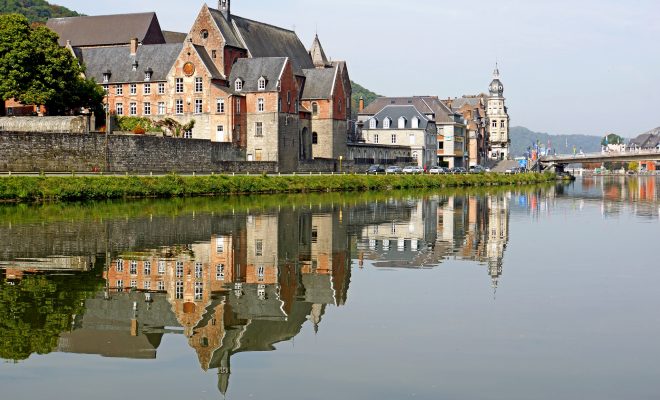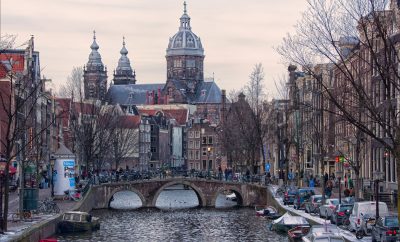 Image Courtesy of Dennis Jarvis; License: (CC BY-SA 2.0)
Image Courtesy of Dennis Jarvis; License: (CC BY-SA 2.0)
World
A Holiday Miracle: Belgium and the Netherlands Willingly Trade Land
For much of civilized history, borders were constantly in flux; empires expanded and dissolved, nations fractured into smaller states. Now we live in a world where borders are seemingly fixed lines on a map, bolstered by fences (or perhaps walls) and patrolmen on the ground. But not so for Belgium and the Netherlands. On Monday, with the swish of a royal pen, the two countries swapped a total of about 42 acres of land, settling a 55-year-old territorial quandary.
In 1961, authorities raised the riverbed of the Meuse river, which intersects Belgium’s northeast border with the Netherlands, in order to aid ship navigation. The move inadvertently shifted land belonging to the Belgians to the Dutch and vise versa. Brokered last June, the new deal will redraw the squiggly border from 1843, which will be straightened out to run parallel to the Meuse, effectively swapping about 35 acres total from Belgium to the Netherlands, and about seven acres from the Netherlands to Belgium.
Read more on treaty on border correction with #Netherlands, signed by MFA @dreynders & NL MFA #Koenders: https://t.co/k6wjGTziOF #BELNL2016 pic.twitter.com/1dCVmD970p
— Belgium MFA 🇧🇪 (@BelgiumMFA) November 28, 2016
It all started with a headless body. About three years ago, Dutch citizens stumbled upon a decapitated corpse rotting on one of the parcels of land that was then under Belgian jurisdiction but located on the Dutch side of the river. Because it belonged to Belgium, Dutch authorities were not allowed to investigate the small pocket of land, which has been described as a refuge for wild sex parties and drug-related activities. The body’s unfortunate location–on a peninsula surrounded by a strong river current and on land connected to one country but belonging to another–put Belgian officials in a bind.
“So we had to go there by boat with all that was needed–the prosecutor, the legal doctor, the judicial lab–we had to do round trips over the water. It really was not very practical,” Jean-Francois Duchesne, police Commissaire of the Lower Meuse region in Belgium told the Associated Press last year when the land-swap deal was brokered. The episode triggered both sides to face their impractical reality and spurred a movement to hammer out a new border.
Free from the typical bloody border disputes peppering world history textbooks, Belgian Foreign Minister Didier Reynders said the deal is “proof that borders can be redrawn in a peaceful way.” Both countries benefit from the fact that all of the land concerned in the deal is barren: nobody lives there, and no buildings of any sort have been built. The new border is set to go into effect on January 1, 2018.








Comments